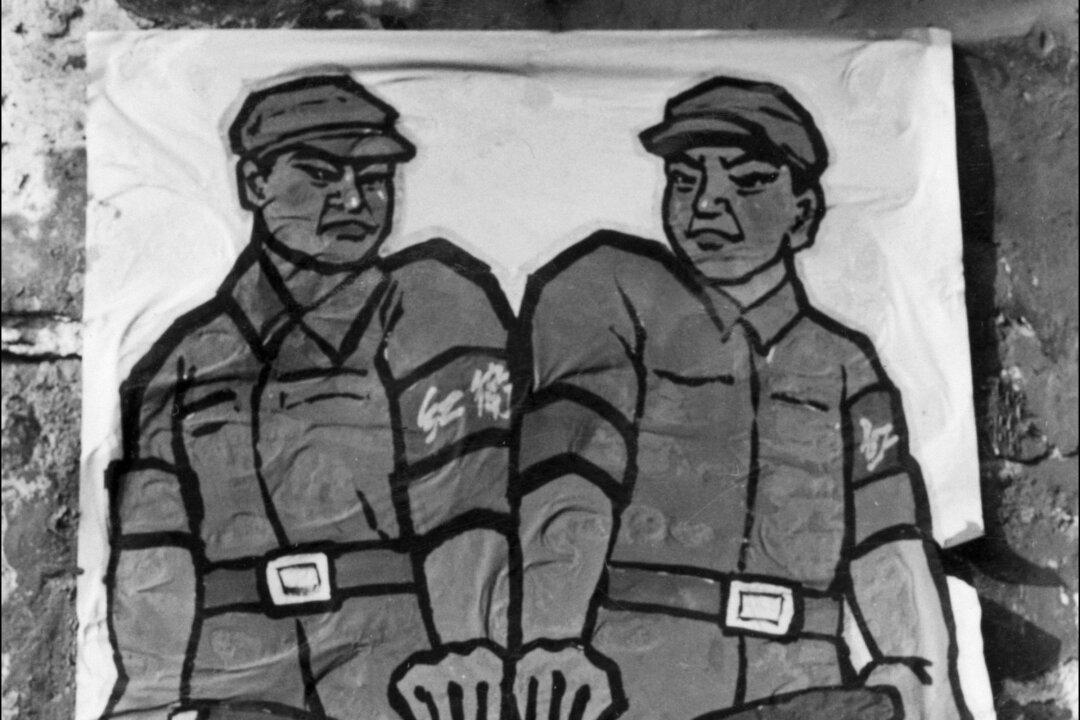Radicalized by the Cultural Revolution, Zhang Hongbing was just 16 when he denounced his own mother as a “counterrevolutionary” to the authorities, which led to her death before a firing squad, according to the Beijing News. Now 59 years old, Zhang, whose given name literally means “red guard,” is fighting for his mother’s grave to be officially recognized as a historical landmark, representing the cruelty of the Cultural Revolution.
Born in Wuhe County, Bangbu City, Anhui Province, Zhang was a Red Guard at the time of the Cultural Revolution. The Red Guards were a paramilitary movement of youth who would frequently beat up anybody they considered to be “counterrevolutionaries,” including intellectuals, former land owners, and old people. According to Zhang, the Cultural Revolution was an era when it was not uncommon for people to abandon their family ties and report their own family members to the authorities.
Zhang told Beijing News that on the evening of Feb. 13, 1970, his family had an argument over the Cultural Revolution, which culminated with his mother criticizing the political leaders of the Chinese Communist Party (CCP) for promoting idol-worshipping.
She then suggested that “we should redress Liu Shaoqi.” Liu was a prominent political figure who had been branded a traitor and died in custody the year before. The Cultural Revolution was essentially a political struggle instigated by Mao Zedong to eradicate Liu’s influence in the CCP.
Fang’s words shocked Zhang. At that moment, in his eyes she was no longer his mother, but a class enemy.
Reporting His Mother
Worried that his father might choose to remain silent on the matter, Zhang secretly wrote a letter and slipped it along with his Red Guard badge under the door of a local army officer’s house, knowing that it could lead to his mother’s arrest and execution.
Zhang told the Beijing News the officer later arrived at their home with a subordinate. They then proceeded to kick Fang, who collapsed to her knees, and tied her up. Forty-three years later, Zhang says that he can still remember the cracking sounds that his mother’s shoulder joints made as they bound her arms tightly with rope.
Zhang’s father had reported Fang to the authorities himself as well, and he said to her, “You’re going to be buried in Guzhen County. I’ve reported you, and I wrote in the report, ‘Crush Fang Zhongmou, a counterrevolutionary who was caught red-handed! Execute Fang Zhongmou!’” Fang was executed two months later by firing squad.
Zhang’s 66-year-old uncle, Fang Meikai, recalled being present throughout the events of that evening. He said that at that time, he had believed that his sister would only end up being sent to prison.
Despite the heavy toll Zhang’s family paid, Zhang and his younger brother were still eventually barred from enrolling in senior high school, joining the army, or working in the factories, as punishment for their mother’s deviation. They were later both expelled to countryside.
It was another ten years before a provincial-level court overturned the original verdict after re-examining the case, and declared the case to have been misjudged.
An Example For All
Zhang has deeply regretted his actions ever since then, and has appealed to the local authorities of Guzhen County since September 2011 to have his mother’s grave marked and preserved as a historical landmark, according to the Beijing News. None of his appeals have been successful so far. Zhang hopes that through his efforts, he can encourage people to discuss, criticize and remember the brutality of that historic era.
Zhang hopes that a museum commemorating the Cultural Revolution can be built someday in the future, and that his tragic story can be documented and displayed there. “Let people scorn me and condemn me. I want to serve as a negative example that they can all learn from,” said Zhang.
Translated by Leo Chen. Written in English by Tan Shu Yan.

